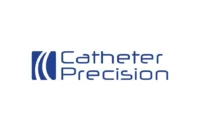MARLBOROUGH, Mass., Aug. 8, 2018 /PRNewswire/ — Boston Scientific Corporation (NYSE: BSX) today announced it has signed an agreement to acquire VENITI, Inc., a privately-held company in Fremont, California which has developed and commercialized the VICI VENOUS STENT® System for treating venous obstructive disease. Boston Scientific has been an investor in VENITI since 2016 and currently owns 25 percent of the company. The transaction price for the remaining stake consists of $108 million up-front cash, as well as up to $52 million in payments contingent upon U.S. Food and Drug Administration (FDA) approval of the VICI stent system.
Venous obstructive disease – instances of abnormal, blocked or damaged veins – affects more than 1.1 million people in the United States and Western Europe annually. Vein obstructions, often caused by conditions such as deep vein thrombosis, post thrombotic syndrome and May-Thurner syndrome, can prevent proper blood circulation and cause patients to experience pain, swelling, ulcers and a diminished quality of life. Physicians often choose to open the obstructed vessel with a stent to reinstate proper blood flow to the heart and lungs and reduce a patient’s symptoms.
The self-expanding, nitinol VICI stent system was developed specifically for use in the venous anatomy, which presents different challenges than placing stents in the arterial vascular system. The VICI stent is designed to withstand compression and maintain patency and flexibility over the course of a patient’s life expectancy.
“This stent system was designed with the distinctive demands of the venous system in mind, and built to provide physicians with a high-quality lumen across a variety of venous anatomies and disease states,” said Jeff Elkins, president and Chief Executive Officer of VENITI. “We are excited to see this stent technology become even more accessible to physicians and the patients they treat under the leadership of Boston Scientific.”
The VICI stent system received CE Mark in 2013 and VENITI submitted a pre-market approval (PMA) application to the FDA in June, leveraging results from the recently completed VIRTUS pivotal study. Currently in the U.S., there are no stent technologies specifically indicated for use in the peripheral venous system.
“With the unique benefits of this differentiated technology and the strong experience of Boston Scientific in the overall venous market, we believe the VICI stent will become an important choice for physicians who choose stents to treat patients suffering from venous disease,” said Jeff Mirviss, senior vice president and president, Peripheral Interventions, Boston Scientific. “Along with our leading AngioJet™ thrombectomy platform and venous product pipeline, we look forward to meeting the needs of physicians treating both chronic and acute venous disease.”
The acquisition of VENITI is expected to be immaterial to Boston Scientific adjusted earnings per share (EPS) in 2018 and 2019, and accretive thereafter. On a GAAP basis for 2019 and subsequent years, the transaction is expected to be less accretive, or more dilutive as the case may be, due to amortization expense and acquisition-related net charges. For 2018 on a GAAP basis, the transaction is expected to be accretive due to a one-time gain on prior investment. The completion of this transaction is imminent, subject to customary closing conditions.
In the U.S., the VICI Stent System is an investigational device and is not available for sale.
About Boston Scientific
Boston Scientific transforms lives through innovative medical solutions that improve the health of patients around the world. As a global medical technology leader for more than 35 years, we advance science for life by providing a broad range of high performance solutions that address unmet patient needs and reduce the cost of healthcare. For more information, visit www.bostonscientific.com and connect on Twitter and Facebook.
Cautionary Statement Regarding Forward-Looking Statements
This press release contains forward-looking statements within the meaning of Section 27A of the Securities Act of 1933 and Section 21E of the Securities Exchange Act of 1934. Forward-looking statements may be identified by words like “anticipate,” “expect,” “project,” “believe,” “plan,” “estimate,” “intend” and similar words. These forward-looking statements are based on our beliefs, assumptions and estimates using information available to us at the time and are not intended to be guarantees of future events or performance. These forward-looking statements include, among other things, statements regarding the acquisition, the financial and business impact of the transaction, product launches and product performance and impact. If our underlying assumptions turn out to be incorrect, or if certain risks or uncertainties materialize, actual results could vary materially from the expectations and projections expressed or implied by our forward-looking statements. These factors, in some cases, have affected and in the future (together with other factors) could affect our ability to implement our business strategy and may cause actual results to differ materially from those contemplated by the statements expressed in this press release. As a result, readers are cautioned not to place undue reliance on any of our forward-looking statements.
Factors that may cause such differences include, among other things: future economic, competitive, reimbursement and regulatory conditions; new product introductions; demographic trends; the closing and integration of acquisitions; intellectual property; litigation; financial market conditions; and future business decisions made by us and our competitors. All of these factors are difficult or impossible to predict accurately and many of them are beyond our control. For a further list and description of these and other important risks and uncertainties that may affect our future operations, see Part I, Item 1A – Risk Factors in our most recent Annual Report on Form 10-K filed with the Securities and Exchange Commission, which we may update in Part II, Item 1A – Risk Factors in Quarterly Reports on Form 10-Q we have filed or will file hereafter. We disclaim any intention or obligation to publicly update or revise any forward-looking statements to reflect any change in our expectations or in events, conditions or circumstances on which those expectations may be based, or that may affect the likelihood that actual results will differ from those contained in the forward-looking statements. This cautionary statement is applicable to all forward-looking statements contained in this document.
Use of Non-GAAP Financial Measures
To supplement our consolidated financial statements presented on a GAAP basis, we disclose certain non-GAAP financial measures, including adjusted net income and adjusted net income (earnings) per share that excludes certain charges and/or credits, such as amortization expense and acquisition-related net charges (credits). These non-GAAP financial measures are not in accordance with generally accepted accounting principles in the United States and should not be considered in isolation from or as a replacement for the most directly comparable GAAP financial measures. Further, other companies may calculate these non-GAAP financial measures differently than we do, which may limit the usefulness of those measures for comparative purposes. For further information regarding our non-GAAP measures, see Part II, Item 7 – Management’s Discussion and Analysis of Financial Condition and Results of Operations in our most recent Annual Report on Form 10-K, which we may update in Quarterly Reports on Form 10-Q we have filed or will file hereafter.
CONTACTS:
Trish Backes
Media Relations
(651) 582-5887 (office)
trish.backes@bsci.com
Susie Lisa, CFA
Investor Relations
(508) 683-5565 (office)
BSXInvestorRelations@bsci.com
SOURCE Boston Scientific Corporation






